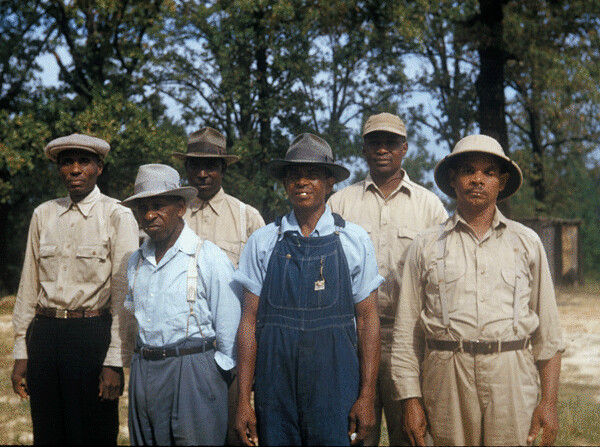
It’s been 50 years ago last month since the nation learned about one of the most shameful and consequential chapters in U.S. medical research (and there’s a fair bit to pick from). In the “Tuskegee Study of Untreated Syphilis in the Negro Male,” the U.S. Public Health Service enrolled 600 Black male sharecroppers from Tuskegee, Alabama, and intentionally withheld information and treatment from approximately 200 of the 399 Black men who had syphilis while researchers studied how the disease affected their life course.
Key takeaways for journalists
- An understanding of health care racial/ethnic disparities is essential for ethical reporting on health and medicine.
- The Tuskegee Study is a consequence of U.S. institutional racism and false beliefs about Black men, and it’s one contributor to health care disparities among Black Americans today.
- A basic familiarity with the facts of the Tuskegee Study is crucial for health reporters to know.
- Part of the Tuskegee Study’s enduring legacy contributes to the mistrust and/or skepticism many Black Americans have regarding health care and medicine.
- The Tuskegee Study alone is not the primary driver of Black mistrust in health care and should not be dismissively used as a scapegoat to explain a complex phenomenon informed by people’s personal experience, a long history of personal and structural racism in U S. health care, and the continuing systemic racism that exists in U.S. health care and medicine.
About the Tuskegee Study
The researchers did not tell the men they had syphilis but told them they had “bad blood” — and did not collect informed consent from participants when the study began in 1932. They also did not counsel them on how to avoid spreading the disease and did not treat them with penicillin even when the antibiotic became widely available in the 1940s as an effective syphilis treatment, thereby revealing (not for the first time) the immorality and vast negligence of institutional racism in the U.S. medical research and health care systems.
The study “became the longest (1932–1972) nontherapeutic experiment on humans in the history of medicine and has come to represent not only the exploitation of Blacks in medical history, but the potential for exploitation of any population that may be vulnerable because of race, ethnicity, gender, disability, age or social class,” as physician Giselle Corbie-Smith wrote in a 1999 paper.
Unethical medical research on Black people wasn’t new in the U.S. by any stretch, as the gynecological research of James Marion Sims on Anarcha, Lucy, and Betsey and countless other examples have made clear. But the magnitude of blatant disregard for low-income Black men’s well-being in Tuskegee galvanized reform in medical research and left a legacy that continues to reverberate through medical research and U.S. health care today.
To commemorate the 50th anniversary of the story break by Associated Press investigate reporter Jean Heller, the only woman on the agency’s Special Assignment Team, the AP has republished the original story about the Tuskegee Study and a behind-the-scenes story on how Heller broke the news. Despite some occasional anachronistic language — such as “venereal disease” and the dehumanizing use of “syphilitics” instead of person-first language — the article is worth reading to get a sense of how shocking the revelation was. From the very first line, Heller doesn’t pull any punches: “For 40 years the U.S. Public Health Service has conducted a study in which human guinea pigs, denied proper medical treatment, have died of syphilis and its side effects.”
Why Tuskegee remains important today
The most important reason for journalists to read the story and be familiar with the Tuskegee Study is to understand how significantly it continues to affect medical research and health care. Whatever seeds of distrust already existed, justifiably, among Black Americans toward health care, the Tuskegee study planted more and watered them.
Study after study after study has reported that Black Americans are underrepresented in clinical trials, even for diseases that disproportionately affect them at higher rates. And study after study after study has found, among other reasons, that distrust is a common thread underlying that low participation. The Tuskegee Study is only one part of that and may not even necessarily be a big part of it, as some research has found. But a wealth of studies have revealed other ways the Tuskegee Study has affected Black Americans, from contributing to lower life expectancy to hampering efforts to treat HIV to vaccine hesitancy, though Tuskegee was far from the top reason for the latter among Black Americans.
Some studies have disputed the impact of the Tuskegee Study on Black Americans’ mistrust of American health care, but those studies preceded Web 2.0 and the ubiquitous influence of social media, which have increased awareness about the experiment. What’s undeniable is that health care disparities and systemic racism persist in U.S. health care, and the Tuskegee study, despite a formal apology from President Bill Clinton and a subsequent settlement to affected families, is a part of that.
At the same time, Tuskegee is not responsible for all health care disparities affecting Black Americans or is it the primary driver for Black mistrust — there’s more than enough structural racism in the health care system to sustain that without the Tuskegee Study’s legacy.
One positive result of the exposé on the Tuskegee Study was The Belmont Report, which established guidelines and the ethical principles of “respect for persons, beneficence and justice” to protect people who participate in research. Yet it still took until 1991 for the federal government to adopt the Federal Policy for the Protection of Human Subjects, fully codifying the protections recommended in The Belmont Report.
AHCJ has reached out to several Black health care providers to get their perspectives on how the Tuskegee Study continues to affect Black Americans, racial disparities in health care and Black Americans’ access to care and treatment. We look forward to bringing you those perspectives in a future post.








